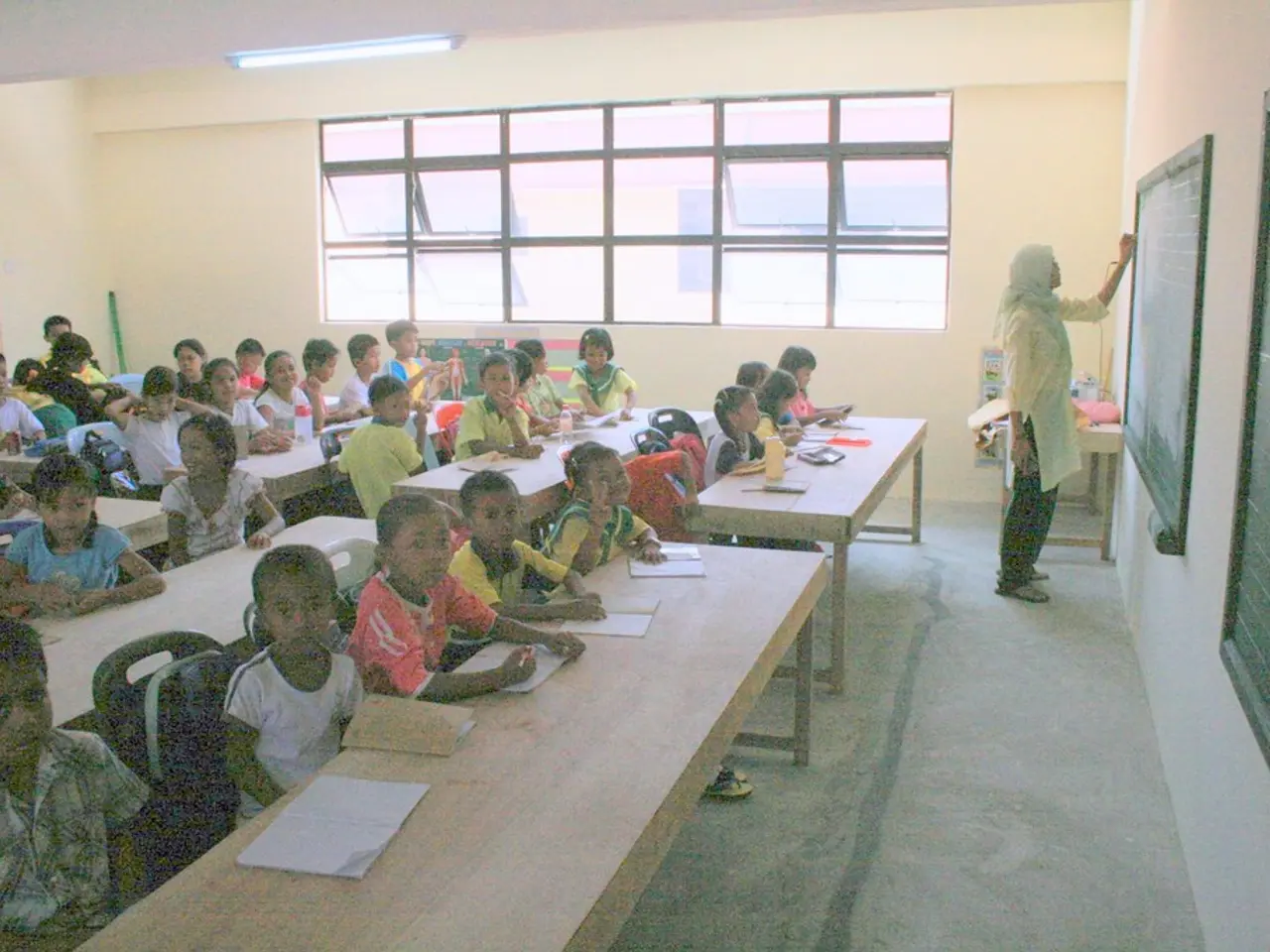Impact of Artificial Intelligence on Test Preparation Equity for Low-Income Students: 7 Approaches It's Using to Bridge the Divide
In recent years, the landscape of SAT preparation has undergone a significant shift, with the introduction of high-quality AI-driven platforms offering affordable or free versions. This development is particularly beneficial for low-income students who may have historically faced challenges in accessing quality resources and structured prep opportunities.
One such platform is Medly, an AI tutor specifically designed for SAT preparation. Medly provides personalised learning, instant feedback, and targeted practice towards weak areas, making it a cost-effective alternative to private tutoring for thousands of students. Another notable tool is the Ready4SAT App, which uses adaptive learning to customise study plans based on a student's performance. It offers a substantial free version, making it accessible for low-income students.
Khan Academy, a widely recognised name in education, also provides free, comprehensive SAT prep. Supported by philanthropic efforts, it offers practice exercises, detailed feedback, and an AI chatbot tutor. Its broad adoption and no-cost model make it a key resource for low-income students.
These AI-driven tools are transforming the way SAT prep is accessed, replacing costly tutoring with personalised, scalable, and accessible preparation. By reducing barriers, they are crucial in levelling the educational playing field for students from low-income backgrounds.
Schools can also play a pivotal role in helping students make the most of these resources. By weaving AI practice tools into classroom instruction or after-school programs, educators can guide students in getting the most from these resources. Schools can help students use AI SAT tools strategically by incorporating them into curricula and offering support.
AI represents a powerful step towards more equitable access to college admissions success for low-income students. These tools not only deliver personalised practice and feedback but also teach effective test strategies. Furthermore, they often include pacing analytics and time management tips tailored to a student's practice performance.
Organisations like Khan Academy, in partnership with College Board, provide free, AI-supported SAT practice tailored to individual needs. This collaboration underscores the potential for collaboration between educational institutions and AI prep providers to ensure students have access to premium features or device loans.
In conclusion, AI-powered SAT prep tools are democratising access to high-quality SAT preparation that traditionally requires expensive one-on-one tutoring. They are helping to close achievement gaps linked to socioeconomic status, and are a significant stride towards more equitable access to college admissions success.
[1] Medly: Making SAT Prep Affordable and Accessible for All. (2021). Retrieved from https://www.medly.ai/
[2] Ready4SAT App: Revolutionising SAT Prep with AI. (2021). Retrieved from https://www.ready4sat.com/
[3] Khan Academy: Free SAT Prep for Low-Income Students. (2021). Retrieved from https://www.khanacademy.org/sat/
[4] AI-Powered SAT Prep Tools: A Step Towards Equity in College Admissions. (2021). Retrieved from https://www.edweek.org/leadership/opinion-ai-powered-sat-prep-tools-a-step-towards-equity-in-college-admissions/2021/02
Progress tracking and personalized learning are key features of AI-powered SAT prep tools like Medly, Ready4SAT App, and Khan Academy, which are revolutionizing education-and-self-development by making premium resources accessible to low-income students. With finance being a significant hurdle for these students in accessing quality SAT prep, these tools provide an affordable alternative to traditional private tutoring, thereby progressively reducing the achievement gaps linked to socioeconomic status. [Medly, Ready4SAT App, Khan Academy]
Technology, in the form of AI, is transforming education by offering customized learning experiences and valuable feedback, particularly benefiting low-income students who have historically faced challenges in obtaining quality resources. By incorporating AI-supported SAT practice into curricula and offering support, schools play a vital role in ensuring that all students can make the most of these tools, further democratizing access to college admissions success. [AI, schools]




